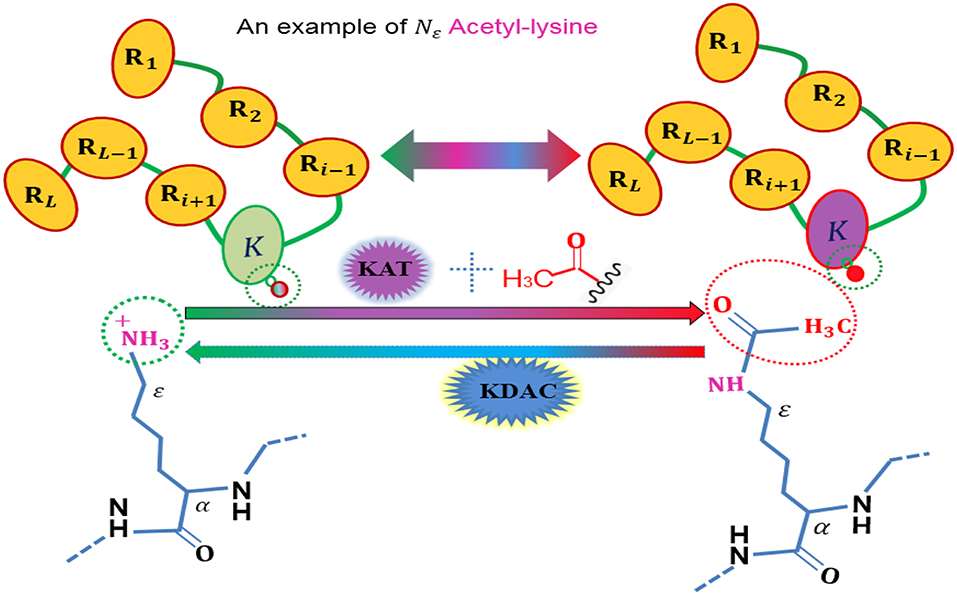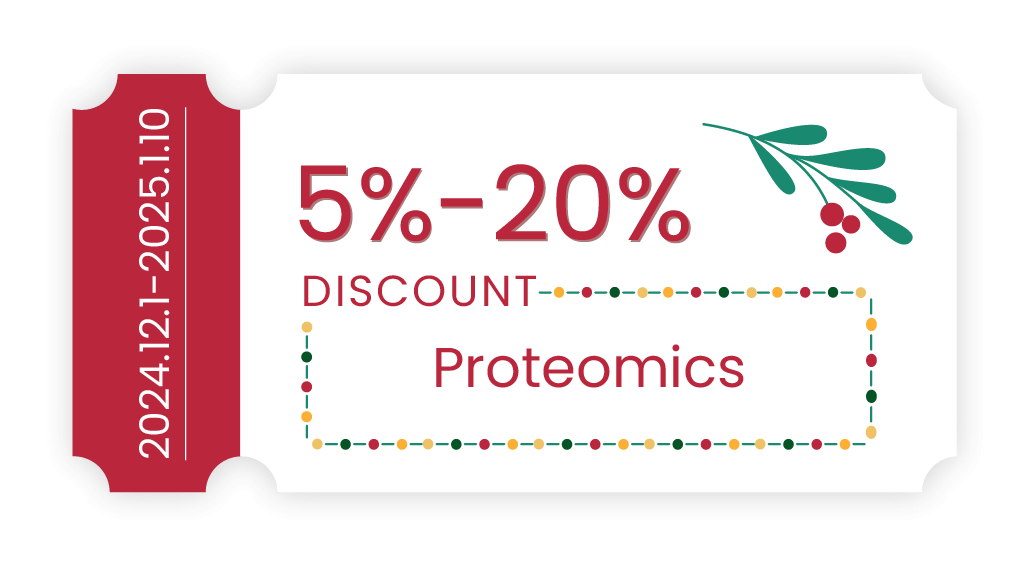Acetylation Analysis Service
Protein acetylation is a prevalent PTM with a crucial role in regulating diverse cellular processes, including gene expression, protein stability, and cell signaling. At Creative Proteomics, we excel in providing high-quality acetylation analysis services, encompassing identification, quantification, and characterization. We offer valuable insights into your protein research, enhancing the understanding of acetylation's impact on cellular functions.
What is Acetylation
Protein acetylation, the most common reversible acylation modification, involves the enzyme-catalyzed covalent binding of an acetyl group to a substrate protein, primarily occurring at the ε-NH2 position of lysine residues. This highly conserved modification is regulated by acetyltransferases (HATs/KATs) and deacetylases (HDACs/KDACs). Deacetylation mechanisms include zinc binding to acetyl oxygen and NAD+-dependent processes. Ubiquitous in cellular chromatin structures and metabolic enzymes, protein acetylation and deacetylation play vital roles in metabolic diseases, pathway regulation, and enzyme activity. Creative Proteomics offers comprehensive acetylation analysis services, providing insights into these crucial cellular processes.

Fig.1 Schematic of Acetylation (Qiu, W. R. et al., 2019)
In the initial investigations of acetylation, the primary focus was on the examination of histones within the nucleus and their role in regulating gene transcription and expression. The process of acetylation plays a crucial role in promoting the separation of DNA from histone octamers and the relaxation of nucleosome structure. This, in turn, facilitates the binding of various transcription factors to DNA, initiating the activation of gene transcription. Subsequent research revealed that acetylation extends beyond histones, encompassing non-histone proteins at a notably high frequency. These non-histone protein acetylations constitute a significant proportion of acetylated proteins in mammalian cells. Moreover, they participate in numerous key cellular processes relevant to both physiological functioning and various disease states.
Applications of Acetylation Analysis
- Gene Expression Regulation
Investigating how acetylation of histones and transcription factors influences gene expression and chromatin structure. - Metabolism and Energy Homeostasis
Studying the role of acetylation in the regulation of metabolic enzymes and pathways, including those involved in energy production. - Mitochondrial Function
Understanding how acetylation regulates mitochondrial proteins and functions, including energy production and apoptosis.
Acetylation is a pervasive and important PTM of proteins, focusing not only on effects on cellular chromosome structure and activation of transcriptional regulators in the nucleus, but also affecting various aspects involved in the cell cycle and metabolism, the control of actin polymerization, tumors, and polyglutamine diseases. Protein acetylation has also been a favorable target for the development and design of new drugs for numerous diseases in recent years.
Our Service
Creative Proteomics has advanced protein detection technologies and can provide customized services to researchers and scientists to help them reveal the complexity of PTM using powerful mass spectrometry technologies. Our services are thoughtful and detailed and the process of acetylation analysis service is as follows:

Fig.2 Acetylation analysis workflow
- Sample Preparation
Proper extraction and preparation of proteins from biological samples to ensure preservation of acetylated proteins. - Acetylation Enrichment
Enrichment techniques are employed to isolate acetylated proteins or peptides. This step is crucial as acetylation modifications are often present in low abundance compared to unmodified proteins. - Detection
WB, protein microarrays and LC-MS/MS are powerful tools for the identification and quantification of acetylated peptides, and they provide detection information that facilitates a comprehensive analysis of acetylation. - Bioinformatics Analysis
Advanced bioinformatics tools are used to analyze data, identify acetylated peptides, and map these modifications to protein sequences. - Result Delivery
After professional data analysis, we deliver results quickly and consistently.
Creative Proteomics brings a wealth of experience to the field of protein research. Our comprehensive services and products cover the entire spectrum of utilizing suitable and efficient gateways. Utilizing our proprietary platform, we have successfully implemented many proteomics research projects. If you are interested, please contact us for more information and a quote.
Reference
- Qiu, W. R.; et al. Identifying Acetylation Protein by Fusing Its PseAAC and Functional Domain Annotation. Front Bioeng Biotechnol. 2019, 7: 311

